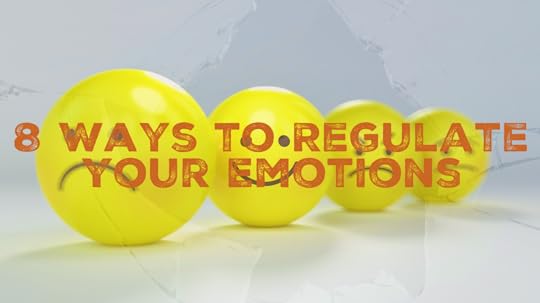8 Ways to Regulate Your Emotions

Emotions are the drivers for human action. They shape your experience as a human being. They can take you to the heights of pleasure, and to the depths of despair. Life without emotion is unimaginable, but what about life with uncontrolled emotion? Mental health professionals call this emotion dysregulation, which is feeling like your emotions are scattered, in constant flux, outside your control, and unmanageable. This is a difficult place to be, but there is hope. There are skills and ways of thinking that can enable you to regulate your emotions, putting you back in the drivers seat. Below are 8 ways to do this.
Identify What you are Feeling: Recognizing what you are feeling, in the moment, if half the battle. Research shows that identifying/labeling a feeling helps with processing and resolving your emotional state.
Identify Physiological Response: With an emotional response comes a physiological one as well. Both states, physical and emotional, need to be calmed and soothed in order to attain emotional regulation. Additional, the soothing of one helps soothe the other. By doing something that makes you physically feel better will help you also feel emotionally better and vice versa.
Don’t Avoid, Embrace— Mindfulness: Mindfulness is the act of observing your emotions without fighting them. Deep breathing helps put you in a calm state of mind where you can make self-observations of your emotional state. It also helps then describe what you are feeling. Describing is not judging. This is a key difference. By judging what you are feeling, that is a reaction which can exacerbate the emotional intensity. By merely observing, you reduce the emotional intensity.
Calming the Five Senses: Psychologists use a term “The Mind-Body Connection” to describe the intimate connection between the emotional and physical states. One impacts the other. This is not just a point of interest, it also can help with emotionally regulating. When you can do an activity that stimulates one of the five senses: taste, touch, sight, hearing and smell, it helps distract and soothe emotional dysregulation.
Distraction: When Self-Soothing is not effective, sometimes it is effective to distract yourself from the unwanted feeling or thought, and then, at a later time, attempt to address and resolve the issue. Make a list of effective distractions that help take your mind of what you are thinking and feeling.
Opposite Action: A distressing emotion may prompt a person to be self-destructive. Therefore, the idea of opposite action is meant to be a counter to this destructive process by encouraging an individual to do the opposite of what they are feeling. For example, if you see a group of people talking and you assume they are gossiping about you, you could be filled with embarrassment and anger and walk up to them and yell insults at them. This would likely lead to a negative outcome. So, instead of acting on the impulse to yell and attack, you walk up to them and start a conversation and get to know them. If that feels too intimidating, you can walk away or simply ignore them. Any one of these possibilities avoids the negative outcome of acting out one’s anger.
Radical Acceptance: Everything in your life falls into two simple categories: what you can control and what is outside your control. When you try to control the things that are outside your control, you will make yourself crazy. Place what is in your life in its proper category. Put what is outside your control in the “outside my control” category and accept it for what it is. Put what is in your control in the “within my control” category and make constructive steps towards change.
Express and Process Feelings: Expressing and processing your feelings with a trusted confidante helps you find resolution to what you are feeling. Giving voice to unmentionable feelings makes them manageable.
Managing your emotions effectively by using these skills will lead to numerous benefits. You will feel a new sense of self-control and mastery. These are benefits derived from hard work. It isn’t easy creating a new, healthier relationship with your emotions, but the work is worth it. And, so is your overall emotional health.



